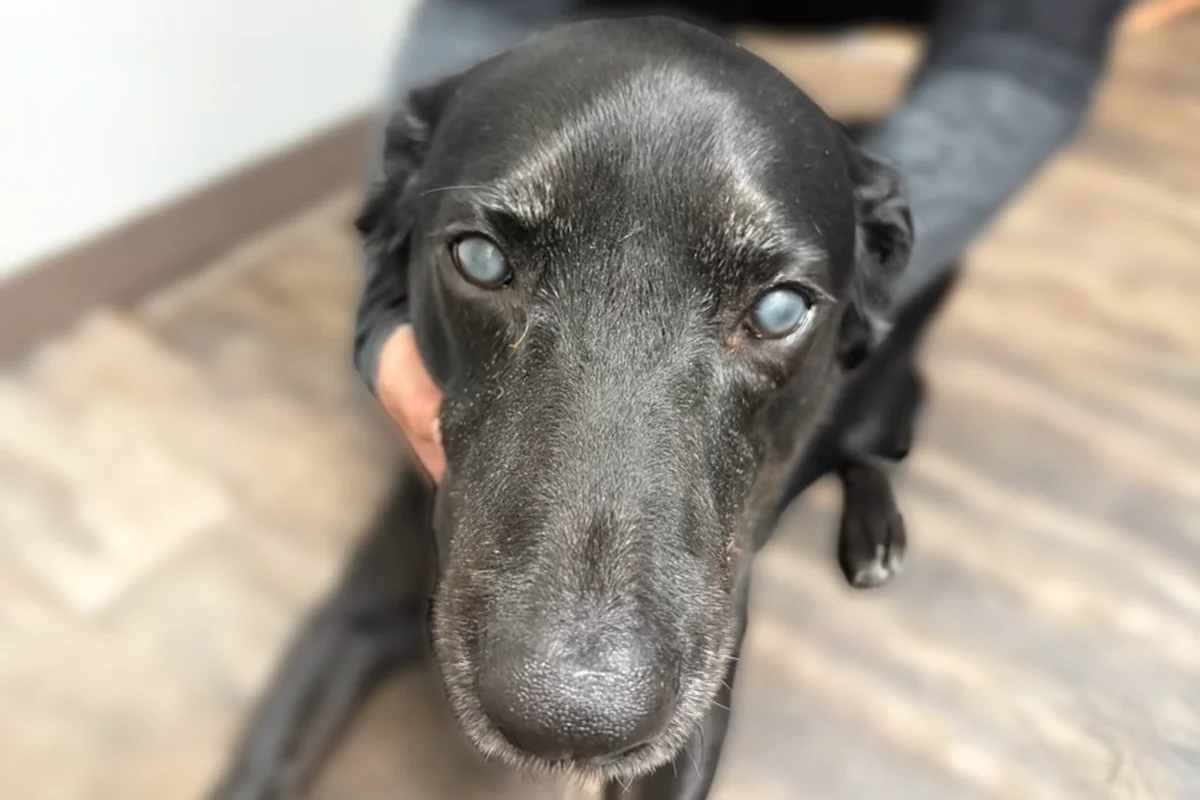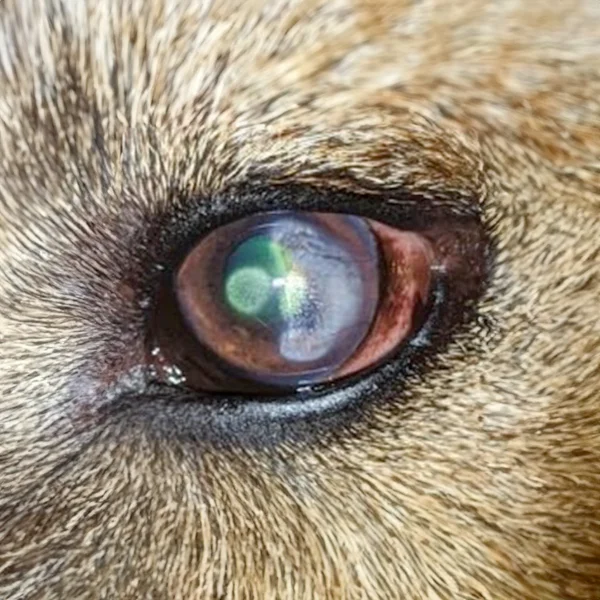Pet Corneal Lipid Deposits in Spring, TX
Bring your pet expert care for their corneal lipid deposits in Spring, TX. We offer comprehensive diagnostics and treatment at North Houston Veterinary Ophthalmology to manage and restore your pet’s vision.

Corneal Lipid Abnormalities
Understanding Pet Corneal Lipid Deposits
Pet corneal lipid deposition refers to deposition of lipid (fat) into the cornea. It can be described as corneal deposits, lipid keratopathy, and corneal degeneration depending on the cause of the deposition. Lipid corneal deposits suggests that it is an inherited condition so it will affect both eyes and is found in certain breeds.
Lipid keratopathy refers to corneal lipid deposits secondary to abnormal lipid metabolism due to a systemic condition (i.e. low thyroid). The third classification is corneal degeneration which means the lipid deposits occur in response to localized inflammation within the cornea, which has many potential causes from a tear film deficiency to an immune-mediated condition.

Clinical Signs of Corneal Lipid Deposits
In pets, corneal lipid deposits typically presents as white, circular lesions on the cornea. These lesions are generally subtle and do not significantly affect vision or cause pain. However, corneal lipid degeneration appears as more opaque, variable-sized white lesions that can progress and obstruct vision or cause continual ulceration of the corneal tissue. Advanced degeneration may result in redness of the conjunctiva, squinting, ocular discharge, and noticeable cavitation of the cornea.
Causes of Corneal Lipid Deposition
Corneal lipid deposits can be an inherited condition that typically affects both eyes. It has been seen in many breeds such as the Beagle, Siberian Husky, Shetland Sheepdog, Cavalier King Charles Spaniel, Airedale Terrier, and Rough Collie, but really any breed can be affected.
Corneal Lipid Keratopathy occurs secondary to a systemic disease such as elevated cholesterol or triglycerides in the blood. It can also occur secondary to systemic diseases such as low thyroid, Cushing’s disease, and diabetes mellitus. Typically fasting lab work is used to rule out systemic causes of lipid deposits.
The final class of lipid corneal deposits is referred to as corneal degeneration. This occurs secondary to an inflammatory condition that affects the cornea. This can be anything from dry eye to intraocular changes that are causing inflammation.
Treatment Options for Corneal Lipid Deposits
Some cases of corneal lipid deposits are mild and self limiting and do not require treatment. Others are more pronounced and lead to pain and vision compromise. In certain cases, topical medications can help slow or resolve lipid deposits’ progression in the cornea. In severe cases, a surgical procedure called a superficial keratectomy is performed to remove the corneal deposits. Sometimes a low-fat diet is recommended for elevated fat in the bloodstream or treatment of a systemic illness is needed to help improve the corneal lipid deposits.
When to Seek Veterinary Ophthalmology Services
Consult a veterinary ophthalmologist if your pet shows signs of corneal lipid deposition. Early detection and intervention can prevent further complications and preserve your pet’s vision. At North Houston Veterinary Ophthalmology, we offer thorough diagnostic evaluations and personalized treatment plans to meet each pet’s unique needs.
Benefits of Veterinary Ophthalmology Services
Engaging the services of a veterinary ophthalmologist provides several benefits. These specialists have the expertise to diagnose and manage complex eye conditions accurately. By addressing corneal lipid deposits promptly, you can ensure the best possible outcome for your pet’s ocular health. Our clinic is equipped with advanced diagnostic tools and treatment options, enabling us to provide high-quality care tailored to each pet’s condition.
Comprehensive Care for Pet Corneal Lipid Deposits
Pet corneal lipid deposits, while often mild, requires careful monitoring and, in some cases, intervention to prevent progression to more severe forms like corneal lipid degeneration. North Houston Veterinary Ophthalmology specializes in delivering exceptional care for pets with ocular diseases, bringing them an improved quality of life and stronger vision for good. If you notice any signs of corneal lipid deposits in your pet, seek our specialized services for a thorough evaluation and appropriate management plan. Your pet’s vision and comfort are our top priorities, and we are here to support their eye health every step of the way.